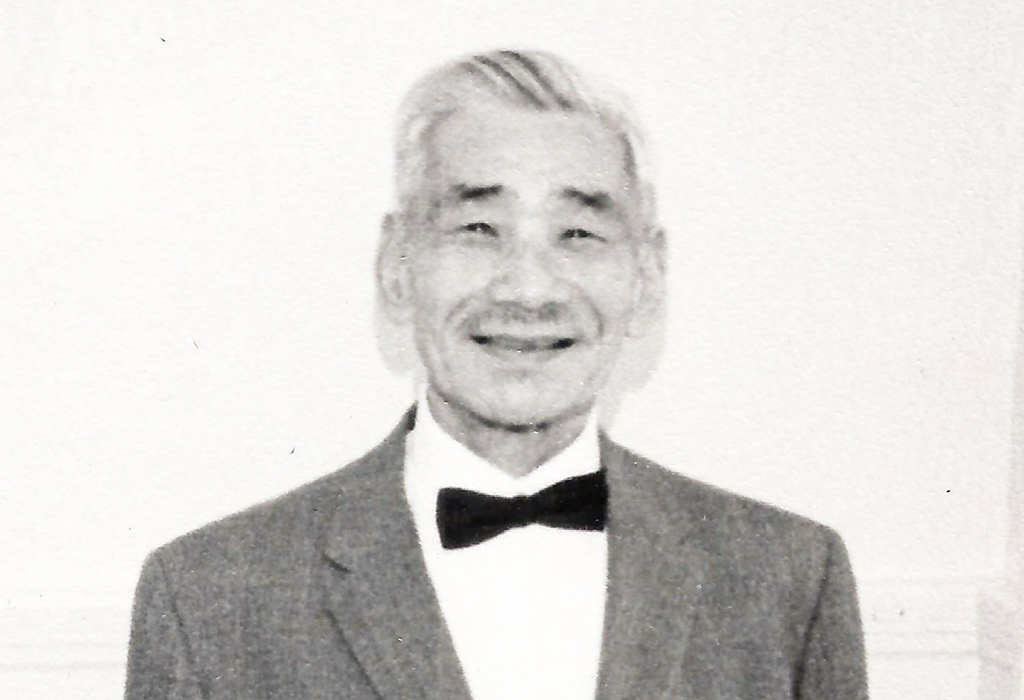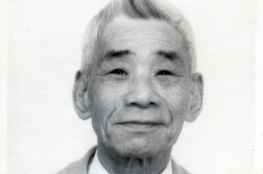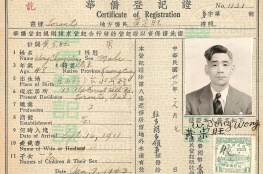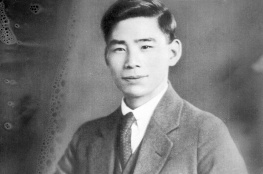This piece was published in Tai Shan magazine in November, 2010 as part of story about Chinese Canadian history, a scan of which you can download as a PDF (2.3Mb).
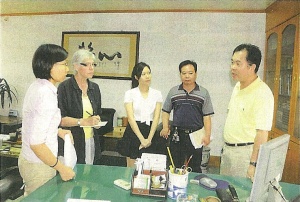
This version, in Chinese includes a photo of our meeting. [On the left Liang Xiaomei (my assistant and interpreter), myself, Cheri the officer who contacted us, the editor of Taishan Xing Ning and director Chen Yao Hong.]
I am a Canadian writer of Scottish and Irish descent. Two years ago I began work on a book which will include the story of a Chinese Canadian, Wong Dong Wong, who was born in Taishan, and came to Canada as a boy of 16 in 1911. In 1917, he relocated from Vancouver on Canada’s West coast to Toronto, and by the late 1920s when he met my grandfather he was working as a domestic cook. In 1928 he came to work for my grandparents and stayed for 37 years. He retired to Chinatown in 1965, and died there in 1970 having never — so far as my family knew, returned to China.
Tracing Mr. Wong’s Story
All this time later, I started tracing Mr. Wong’s story, dreaming that I perhaps would succeed in finding his village. I knew it was in Tai Shan, but I very little about his origins; the family stories varied on the subject of a wife or children. He was very private, but when I was little he told me about being an orphan, and how once he’d lost his way in the fog while tending his uncle’s cow. He’d been terribly afraid, but the cow knew her way, and guided him back home through the night.
I began with the documents he left, which fortunately included one identity card issued in the early 1940, and largely in Chinese. Thus I was able to locate his ancestral village — Wing Ning. I planned the trip over a year, but just before I left for China last September, a story about my search was featured in the local Sing Tao.
This brought a lot of calls and emails by people who were touched by the story. Several offered help, and more than one family contacted relatives in Taishan. The list included the County Bureau for Foreign and Overseas Chinese Affairs which contacted me before I’d left Beijing for Taishan!
Arriving at the Village
We met first with the Village head, Wong Jinhua, in the office of Zhen Changmin Overseas Affairs director for S’anhe County. This was the first of three meetings with Mr. Wong who was generous with his time, and in helping me meet people in the village. Director Chen Yao Hong and his staff in the FOC Affairs Bureau had researched what they could in advance, and offered continued support. I was travelling with an assistant and interpreter, but several of Bureau staff speak excellent English. We were included in the dinner being given that evening to honour Albert Chen, the founder of the Chinese Culture Foundation of San Francisco, by deputy mayor Suzanna Huang. (And it happened to be the birthday of them both!)
We were welcomed in the village. Our arrival was not secret. We visited Wing Ning twice, and spent time there with elder Wong Wenxi who is a grandson of Wong Wanshen, the man responsible for bringing Wong Dong Wong to Canada. Wong Wenxi was six when his grandfather returned from Canada in the mid 1930s, and knew the story of Wong Dong Wong whose father died just before he was born. Wong Wanshen adopted the boy, and from papers the family still have relating to Wong Wanshen’s life in Canada, it seems likely he’d arranged a job for young Wong upon his arrival in Vancouver.
Meeting Mr. Wong’s Family
We met the sons and daughters, and grandchildren of Wong Wanshen’s grandson who showed us around the village and pointed out the landmarks. We met with the oldest resident, now in has 90s who remembers Wong Wanshen as a man of means when he returned, a man who looked after many things in the village.
The trip was a terrific success. I found Mr Wong’s story and met the descendants of his kin. This only happened because people found a reflection of other stories they know about and are connected to in Mr. Wong’s life. These are the stories of the Head Tax generation, an era of Chinese Canadian history when young men were condemned by Canadian Exclusion Laws to a lifetime of relentless work and solitude in Canada. Like Wong Dong Wong their lives were invisible to history during his lifetime, but their enormous contribution to Canadian life is finally becoming known.
Reference: The story of Chinese Canadian pioneers can be found at http://www.mhso.ca/tiesthatbind/ which documents the contribution of the original immigrants from Guangdong to Canada who built the critical last section of the TransCanada railroad through the Rocky Mountains to the coast.
